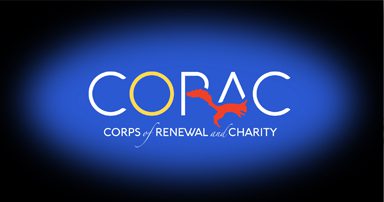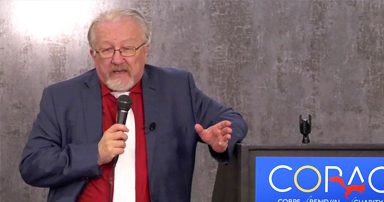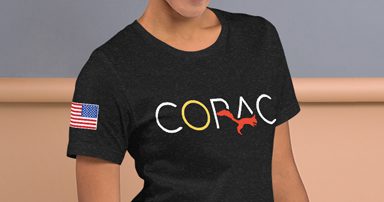[SB] Though I have not focused my research on it, from what I have seen the role of Vitamin C in cancer therapy is not well understood and up for debate. If I recall right there was a leading Vitamin C researcher (and advocate of Vitamin C megadosing) who _speculated_ about 2 decades ago that in some cases at some doses Vitamin C could “feed” tumors. So the finding in this study does not surprise me. Does that outweigh the benefits of taking Vitamin C if you have cancer? I have no idea. I am quite sure that the answer is “it depends on many different factors.” But in all of the above: we’re talking about patients who have been diagnosed with cancer.
Here is what I know: Vitamin C megadosing will help prevent you from getting cancer in the first place. It’s not a guarantee of course (see the case of Linus Pauling himself), but it does help. How do I know this? Because Vitamin C is the most potent, safest, (and cheapest) broad-spectrum anti-toxin known to man. It helps your body reduce / defend against / eliminate toxins in the body which are at the root of so many (all?) cancers. Here is what I would GUESS (I am not a doctor or qualified medical researcher): for early-stage cancer, Vitamin C megadosing will help your body fight the cancer by removing the toxins which are causing the cancer in the first place (i.e. eliminate the root cause of the cancer).
This concern (the role of Vitamin C in treatment of patients _diagnosed with cancer_) is why you will almost never hear me (a staunch Vitamin C megadosing advocate) talk about Vitamin C and cancer.* Many (including Linus Pauling himself, who notably died of prostate cancer) believe, and have promoted, that Vitamin C may be a “cure” for cancer. But (let the reader understand!) UNLIKE Vitamin C’s strong track record as a potent, broad-spectrum, and safe antiviral, antibacterial, and anti-toxin, which IS supported by the medical literature and clinical records, I have NOT found the same clear and unambiguous support in the literature for an anti-cancer effect _when the patient in question already has a cancer diagnosis_. As I said above, I am quite sure the truth is “it’s complicated, and it depends” on the patient, the type of cancer, how far the cancer has progressed, what was the original cause of the cancer, etc. Do I believe that for SOME cancer patients Vitamin C megadosing will have a beneficial effect and aid / result in the elimination of the cancer? 100% absolutely and you can take it to the bank that if I were diagnosed with cancer I personally would be hitting it hard with massive IV doses of Vitamin C – for me, it would see it as worth the risk (due to the likelihood that Vitamin C would eliminate the original cause of the cancer and the possibility that full healing would ultimately result). But note that I said for SOME cancer patients. I think there IS a credible possibility that also in SOME cases Vitamin C could make cancer worse by “strengthening” a tumor the way it “strengthens” the tissues of a healthy person.
Paradoxically, I would point out that the findings of the study in question bolster the (long-held, by respected Vitamin C megadosing practitioners with things like MD and PhD behind their name) claim that Vitamin C speeds wound healing. Why? One reason would be as this study says, it promotes angiogensis – the generation of new blood vessels, a critical aspect of wound healing. If Vitamin C and other antioxidants do this for tumors, why would they not do it for healthy tissue? And this is precisely the core concern: the effect of Vitamin C on tumor tissue may be similar or identical to its effect on healthy tissue, which is to strengthen and invigorate it.
Thus I return to my original thesis: if you are a healthy person without cancer, Vitamin C will benefit your overall health and likely prevent you from getting cancer (by helping you eliminate toxins). If you are sick with a high toxin load or a viral or bacterial infection, Vitamin C will also be of immense benefit to you. If you already have a malignant tumor(s) you’re trying to deal with? Well, in that case you would certainly want to weigh the risks and concerns discussed here, and no you will never hear me make the claim that “Vitamin C is a cure for cancer” – because based on everything I’ve seen, I don’t think that is true.
*As a footnote, I will point out that discussion of Vitamin C as a cancer therapy is a FAVORITE tactic of anti-Vitamin C (pro-Big Pharma?) “skeptics” or “debunkers” or whatever you want to call them. They will center the discussion on this topic, and then point to the ample evidence showing Vitamin C has an inconclusive effect or “no benefit” as a cure for cancer patients. “See? Vitamin C is at best a placebo and does nothing! You’re wasting your time!” All the while, they ignore (and actively suppress!) the ample scientific literature and clinical documentation demonstrating where Vitamin C DOES have an outstanding therapeutic track record (I reiterate: as an anti-toxin, anti-viral, anti-allergen, and anti-bacterial). This is the reason I refuse to engage in any “debate” with Vitamin C “debunkers” on cancer. I cede them that ground and will agree that there is no evidence Vitamin C is a “cure” for cancer and it may even make cancer worse in some patients. I choose to focus my research and advocacy on the solid defensible position I have outlined above. (They will then move on to a different tactic, which I will again remind lay researchers here of because the Internet is FULL of it – do not be deceived! They point to the many studies “debunking” the effectiveness of Vitamin C in an anti-bacterial, anti-toxin, anti-viral, and anti-allergen role. The studies accomplish this by using laughably small doses (typically between 10 and 100 times too small) for the condition being studied. To the experienced Vitamin C user / practitioner, this is trivial to spot. You can know whether a study is a good one simply by looking at the dosage and the condition. Of course “Vitamin C has no effect” if you use an amount more than 10x too small! If you wish to develop an understanding of what effective dose amounts look like, a great place to start is with the papers by Robert F. Cathcart III, MD.)




















0 Comments